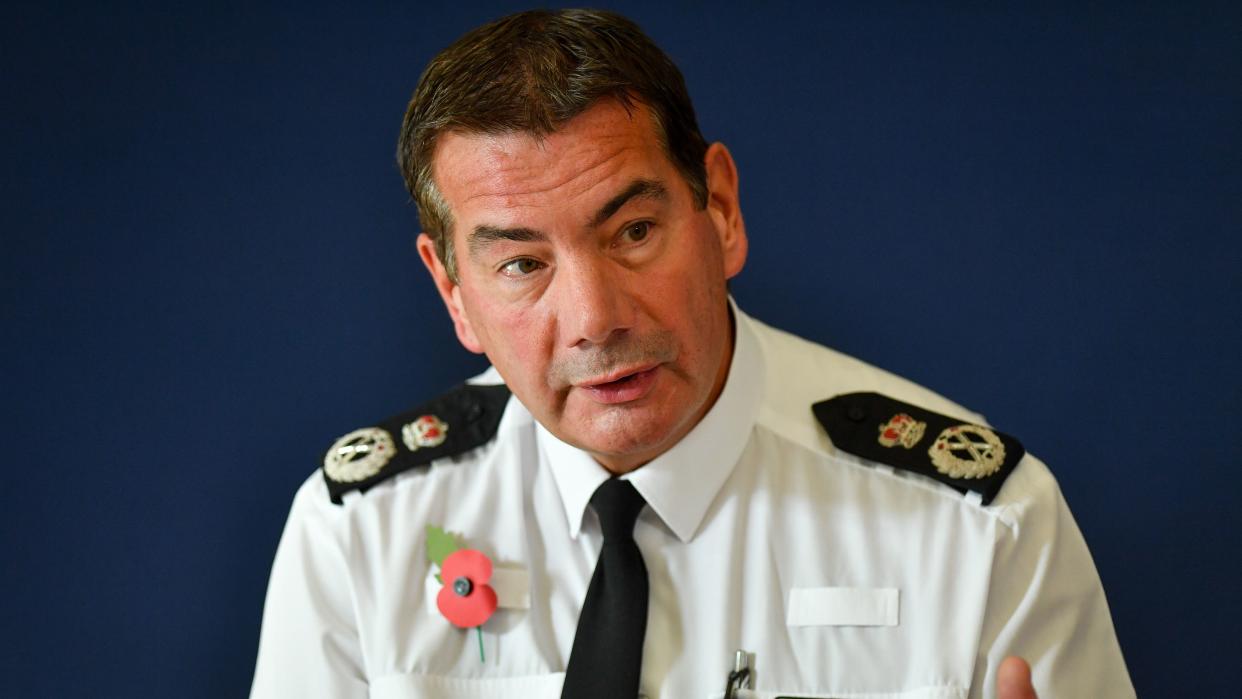Suspended police chief’s Falklands medal ‘appears false’, misconduct panel hears

A Falklands War medal worn by a suspended chief constable accused of exaggerating his rank, length of service and naval achievements is believed to be false, a misconduct panel has heard.
Nick Adderley, of Northamptonshire Police, “built military naval legend that wasn’t true”, the hearing was told.
This included that he had served in the Royal Navy for 10 years when he had served for only two, was a Falklands War veteran even though he was only 15 when it started in April 1982 and that he had attended the prestigious Britannia Royal Naval College, despite his application being rejected.
John Beggs KC, representing the Office of the Northamptonshire Police, Fire and Crime Commissioner (OPFCC) during the three-day misconduct hearing at Northampton Saints Stadium, said it was not suggested that these “deceits” were instrumental in Mr Adderley securing the job of chief constable in August 2018, but that he “plainly should not deceive those who were considering his application”.
Mr Adderley, who was suspended from his role after allegations were made against him, arrived for the first day of the hearing on Tuesday in full uniform and attempted to avoid the waiting press outside the building by entering through a side door.
His counsel told the hearing that he denies misconduct and that he acted without integrity, but admits he breached standards in terms of duties and responsibilities.
He made notes at his desk as Mr Beggs told the panel, chaired by Callum Cowx, that Mr Adderley had claimed he had seen active service during his naval career, had been a military negotiator in Haiti and that he had been a “commander or a lieutenant”.
All these claims are “enormous exaggerations” and Mr Adderley was only ever an able seaman before he was discharged after two years of service, Mr Beggs said, adding that he also “allowed or promoted the notion that he served in the Falklands”.
A South Atlantic Medal, awarded to British military personnel and civilians for service in the Falklands War, that Mr Adderley had worn on several occasions and claimed was his brother’s, is “not believed to be a valid medal”, Mr Beggs said.
He told the panel: “This case is not about whether Mr Adderley made a positive contribution to Northants Police.
“It is about whether he has, over many years, deliberately advanced a false narrative to exaggerate his service, rank and achievements in the Royal Navy and allowed or promoted the notion that he served in the Falklands.
“It is unsurprising that the latter assertion has caused deep offence because we know 255 servicepeople met their deaths in that war and many more were injured.
“To claim you served your country when in fact you were 15 years old is an egregious thing to have done by any person, let alone a senior police officer.”
Mr Beggs also claimed that the senior police officer had failed to correct a number of media articles and publications which mentioned “falsehoods” in his career history over the years and that there was incorrect information on his own CV and application form when he applied for the chief constable role.
He said: “He has over time failed to take any steps whatsoever to correct inaccurate media reports of his service.
“We understand the media can misreport the facts, but if you see the media misreporting you have a duty to put right the factual errors. He did not.
“He said he never noticed these articles, that he had no interest in his media profile.
“It is perfectly appropriate to keep a weather eye on media reporting of that officer. It would be surprising if a senior officer did not read media articles about him.
“We invite the panel to conclude it is risible to conclude he did not notice the misreporting, and go further and say he created the misreporting.”
He also said it was “embarrassing” that Mr Adderley attempted to clarify his claims that he attended the world-famous Britannia Naval College for four years to the Independent Office for Police Conduct even though his application was rejected by saying it had “showed his ambition”.
He added: “He was never a leader in the Royal Navy in any reasonable or ordinary sense, he was the lowest rank among ratings.
“He described himself as a commended officer, but he received no formal commendations or medals. Later he was to suggest by commended he meant people had told him he had ‘done a good job’.”
The hearing continues.

 Yahoo News
Yahoo News 
